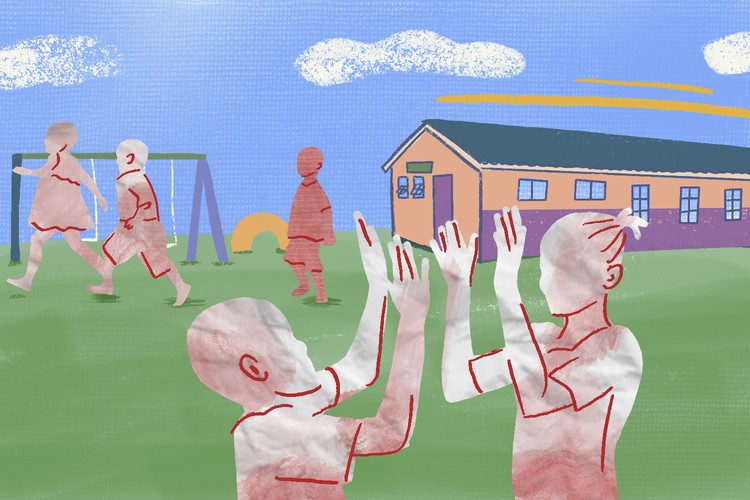Thousands of teaching posts to be cut in the Western Cape
Schools are expected to receive their 2025 staff allocations on Friday
The quality of education in the Western Cape is likely to worsen if the provincial government proceeds to cut thousands of teaching posts. But the province says it simply doesn’t have money. Illustration: Lisa Nelson
- On Tuesday, the Western Cape Education Department (WCED) issued a circular to principals, educators and school-based staff at public schools about post allocations for 2025.
- The WCED said it faces a R3.8 billion budget shortfall over the next three years. Consequently, 2,407 educator posts will be cut effective from January 2025.
- The National Professional Teachers’ Organisation of South Africa said they oppose the cuts and stressed that education will be affected.
More than 2,400 educator posts will be cut in the Western Cape from 1 January 2025. This is according to a circular issued by the Western Cape Education Department (WCED) on Tuesday on posts for 2025.
In the circular, the WCED’s head of education, Brent Walters, said the department only received 64% of the cost of the public sector wage agreement, with the remaining 36% to be funded by the province.
Walters said in an effort to cut spending, the WCED had frozen the recruitment of non-educator staff at head office and across districts, with a current vacancy rate of 21%, and had also cut spending across its directorates.
According to the WCED, a circular was issued on 21 November 2023, indicating that to maintain the number of permanent teaching posts in the system and stability in the schools, “cost containment measures” needed to be implemented.
But despite budget cuts of R2.5 billion, the WCED still faces a R3.8 billion budget shortfall over the next three years, Walters said.
“Considering the growing budget shortfall and fiscal uncertainty, we have no alternative but to announce the reduction of the educator post allocation by 2,407 posts, effective 1 January 2025 – the start of the 2025 school year,” Walters said.
According to National Professional Teachers’ Organisation of South Africa (NAPTOSA), there are currently 37,135 teachers in the Western Cape and 34,728 posts are now proposed for 2025.
“We can now either run into the red financially or we can reluctantly reduce the number of educators in our system in order to afford our current wage bill,” Walters said.
He said that schools will receive their 2025 staff allocations on Friday. “We should never have been placed in this position and it is a fight we share with other sectors such as health.”
He said the Western Cape Government had already taken steps “to address the impact of the decision not to fully fund educator salaries, as well as raised the matter at the Council of Education Ministers’ meeting for urgent action”.
NAPTOSA Western Cape provincial CEO Riedwaan Ahmed said the union opposes the cuts.
He said the process “will inevitably result in the non-renewal of contracts” and some educators being classified as “excess”.
“This will have a negative impact on the education of every child in every classroom in this province.
“The ratio the WCED is projecting –– one teacher for every 36 learners — does not translate to the reality within our classrooms in the Western Cape. … While the WCED says they want to ensure education for every learner in every classroom, that has now certainly gone out the window,” said Ahmed.
“The contract posts are going to go first… The WCED says they are pro-poor and we’ve asked them not to touch the foundation phase. But we’ll see on Friday,” said Ahmed.
Support independent journalism
Donate using Payfast

Don't miss out on the latest news
We respect your privacy, and promise we won't spam you.
Next: Gayton McKenzie silent on basketball fiasco
Previous: Farm workers march in rain and wind to call for ban on pesticides
Letters
Dear Editor
The impact of the teacher cuts is huge when one considers that learners are presently being left behind for lack of support to their learning needs. Consequently, they are dropping out of school at an early age only to be lured onto the streets by gangs where they learn crime from an early age.
In turn, teachers are not taught at university how to manage the class - so the increase in class size will only add to their downfall where they resort to attacks on learners, get suspended, leave the profession and/or leave the country.
All because of budget cuts - and then they wonder why the education system is going to the dogs!
© 2024 GroundUp. This article is licensed under a Creative Commons Attribution-NoDerivatives 4.0 International License.
You may republish this article, so long as you credit the authors and GroundUp, and do not change the text. Please include a link back to the original article.
We put an invisible pixel in the article so that we can count traffic to republishers. All analytics tools are solely on our servers. We do not give our logs to any third party. Logs are deleted after two weeks. We do not use any IP address identifying information except to count regional traffic. We are solely interested in counting hits, not tracking users. If you republish, please do not delete the invisible pixel.

